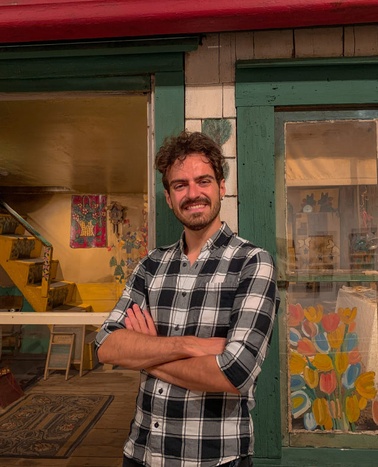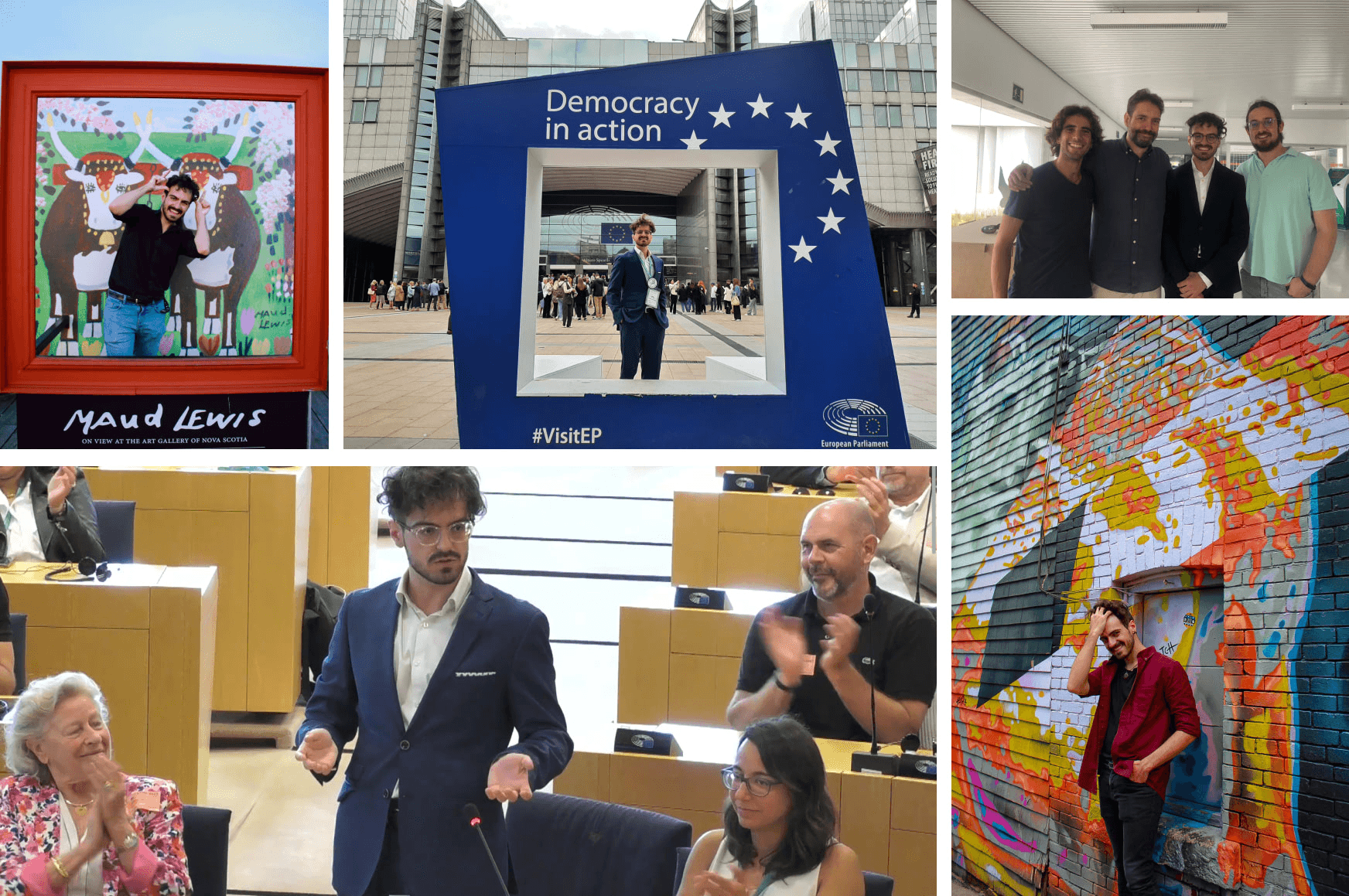
Daniel Precioso Garcelán
I was born in Madrid, Spain, where I spent my entire childhood and college years. For me, happiness isn’t doing what you want; it’s loving what you do. So although balancing a startup, research and teaching doesn't leave much time for hobbies, I make time for some simple pleasures. One of my favorite things is meeting friends every Sunday morning for coffee and churros. Also, I'm a bit of a nerd and love playing board games. If anyone at IE University is looking to start a D&D group, count me in! I balance these out by staying active with fitness activities and dancing. Despite my busy schedule, I try to enjoy these moments of relaxation and connection with friends and interests that make me happy.
"Learning math and programming is like having a superpower that will open doors to exciting careers, even as technology evolves."
Harnessing data science for sustainability
Daniel Precioso Garcelán has always been driven by scientific curiosity and a hunger for research. Those natural inclinations made him an ideal candidate for his bachelor’s degree in Physics, which he pursued at Universidad Complutense de Madrid. Daniel did very well in subjects related to astrophysics and quantum mechanics, but he soon came to a career-defining turning point in his first year.
“I was fortunate enough to take a computer programming course that revealed my true passion: coding,” he says. After the discovery, Daniel switched the entire focus of his undergraduate thesis and started probing the application of Machine Learning in detecting fraudulent card transactions under the guidance of professor David Gómez-Ullate.
Postgraduate studies marked yet another significant shift in Daniel’s career path. He enrolled in a Master of Science degree in Statistical and Computational Information Processing, marking the start of his lifelong foray into data science. The addition of a PhD in Computer Science—his thesis was on the Applications of Machine Learning and Data Science to the Blue Economy—further specialized his focus and sparked Daniel’s interest in the data’s potential to drive the ecological transition.
Daniel calls his PhD journey some of the best years of his life. “It took a lot of work to pull the thesis together,” he says, “but I also had so many enriching experiences.” Based in the picturesque coastal city of Cádiz, he got the chance to work with aerospace companies, collaborate with the naval and fishing industries, and even channel his data analytics skills into the COVID-19 pandemic relief efforts.
He also made many long-lasting friendships, most notably with fellow researcher Javier Jiménez. Along with David, the three went on to co-found Canonical Green, a startup championing sustainable development through data science. “I had the privilege of speaking in front of the European Parliament about our solution to reduce the carbon footprint of the shipping industry,” Daniel adds, noting, “That was pretty wild.”
He recently joined IE University’s faculty as an adjunct professor for the Bachelor in Applied Mathematics teaching classes in computer programming. Some might say it’s another career pivot, but Daniel certainly doesn’t think so. As he explains, “My background in physics and data science is deeply rooted in the fundamental principles of mathematics. It felt like a natural fit for me to become a professor and pass on this knowledge to the next generation of mathematicians.” What’s more, his teaching complements his role as the first-ever postdoctoral researcher at the university. “I want to contribute to both our academics and research.”
Daniel sees applied mathematics as the perfect blend of the deeply theoretical aspects of mathematics with all the practical applications of computer programming. That’s why studying it delivers a well-rounded education that imparts real-world problem-solving skills. He teaches the Computer Programming I course to students in their first year of the program. “Through this course, they’ll gain proficiency in Python and hopefully spark the same joy for coding that I have,” he states.
Furthermore, he believes the Bachelor in Applied Mathematics is key to students’ future success. The program helps develop a unique analytical mindset and exceptional critical thinking skills that make them highly in-demand teammates in virtually any company or industry. Also, programming and data science are becoming more prolific in contemporary society. Python, in particular, stands out as one of the most used programming languages today. With tech giants like Google, Amazon and Netflix relying heavily on Python for their software development, students will find plenty of opportunities after graduation.
As Daniel says, “When you combine mathematical expertise with programming skills, you create a potent skill set that is highly valuable in today's job market.” Professionals with expertise in both will be indispensable in a future where most jobs will be carried out by machines and automation. However, this doesn’t have to be a bad thing: “It just means that new kinds of jobs will appear and these new jobs will require the specialized skills that you learn in applied mathematics.”
With such a versatile skill set, program graduates can launch an exciting career that cuts across every field imaginable, including:
Ecological transition: Conduct simulations on how the globe will evolve using coding and mathematical models.
Healthcare: Leverage programming and tensor mathematics to develop cutting-edge image recognition algorithms.
Finance: Mathematics is at the heart of banking and finance, powering almost every process.
Industry 4.0: Use mathematics and programming to drive innovation and efficiency in the world of advanced manufacturing.
Daniel sees the Bachelor in Applied Mathematics as a vital tool for positive impact. With it, students can open doors to a diverse range of exciting career opportunities, equipped to bring about meaningful, sustainable change in any domain.
Check out in detail Daniel Precioso's academic and corporate experience

